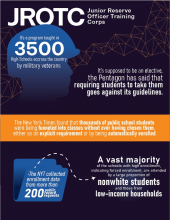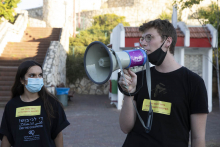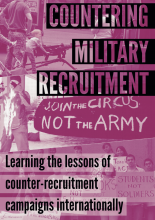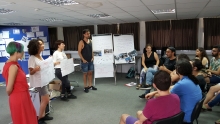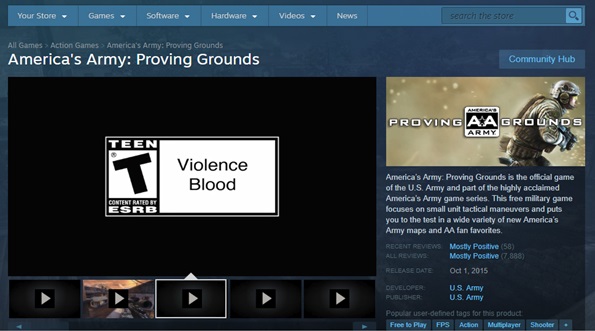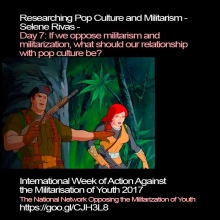Extended web-only discussion with Pat Elder, the director of the National Coalition to Protect Student Privacy, a group that confronts militarism in the schools. He is the author of “Military Recruiting in the United States.” The gunman who fired on students and teachers at Marjory Stoneman Douglas High School in Parkland, Florida, a 19-year-old white former student named Nikolas Cruz, was a member of the Army Junior Reserve Officer Training Corps program, known as JROTC. Cruz also took part in a four-person JROTC marksmanship team at the school which had received $10,000 in funding from the NRA. “[The NRA] realize that if they can start linking the children with the guns at age 13 in the high schools, it’s a win-win proposition for them and for the sellers of weaponry,” says Elder.
Countering the Militarisation of Youth is a project of War Resisters' International | 2017 | All content of this site is licenced under a Creative Commons Attribution-NonCommercial-ShareAlike 2.0 UK: England & Wales License, unless otherwise stated.
Website development by Netuxo Ltd


